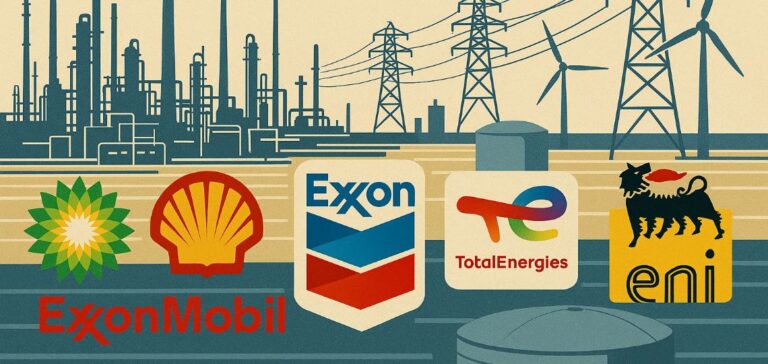Carbon capture and storage (CCS) is becoming an essential strategic component for global oil majors. Between 2023 and 2025, these companies have intensified their investments in CCS, driven by stricter environmental regulations and increased investor pressure. This trend reflects the adaptation of business models to integrate new decarbonization obligations.
Rapid Expansion of the Global CCS Market
The global CCS market is experiencing sustained growth. In 2024, it is valued at $8.8 billion, with a projection reaching $45 billion by 2034, reflecting a compound annual growth rate of 16.7% over the period 2025-2034. This expansion is driven by stricter environmental policies, government incentives, and technological advancements reducing implementation costs.
Strategic Investments by Oil Majors
ExxonMobil announced a $30 billion investment by 2030 in low-carbon technologies, including CCS, hydrogen, and biofuels. This strategy aims to position the company as a leader in the CCS sector while avoiding substantial investments in renewable energies.
Chevron plans an $8 billion investment between 2021 and 2028 in low-carbon projects, including CCS. The company is focusing on projects such as Bayou Bend in Texas and Gorgon in Australia.
TotalEnergies, in partnership with Shell and Equinor, is investing 7.5 billion Norwegian kroner (approximately $714 million) to expand the Northern Lights project in Norway, increasing its CO₂ storage capacity from 1.5 to 5 million tons annually.
BP has reduced its annual investment in low-carbon projects to $1.75 billion from a previous $6.45 billion, while increasing its investments in oil and gas by 20% to reach $10 billion annually.
Major Projects Underway
The Northern Lights project in Norway, supported by Equinor, Shell, and TotalEnergies, represents one of Europe’s most advanced CCS initiatives. With a projected capacity of 5 million tons of CO₂ per year, it aims to provide a cross-border storage solution for European industries.
In the United Kingdom, the government and Eni have agreed to proceed with the Liverpool Bay carbon capture and storage project, transporting CO₂ from industrial sites in northwest England to Eni’s depleted gas fields via a 35 km pipeline network.
In Indonesia, BP and its partners announced a $7 billion investment in a carbon capture project combined with the development of gas fields in the Papua region, with production expected to begin in 2028.
Regulatory Developments and Corporate Obligations
Enhanced environmental regulations are imposing new obligations on oil companies. In the United States, the Inflation Reduction Act provides substantial tax credits for CCS projects, encouraging companies to invest in these technologies.
In Europe, the Net-Zero Industry Act aims to boost Europe’s manufacturing capacity in clean energy technologies, targeting 50 million tons of CO₂ injection capacity per year by 2030.
The United Kingdom government has committed to investing up to £21.7 billion ($28.76 billion) over 25 years to support CCS projects as part of its climate strategy, aiming to reduce industrial emissions and create new jobs in northern England.
CCS Outlook and Challenges
Despite progress, CCS development faces several challenges. The costs associated with CO₂ capture, transportation, and storage remain high, and the economic viability of projects often depends on subsidies and tax incentives. Furthermore, environmental and social concerns persist, particularly regarding storage site safety and public acceptance of projects.
Regulatory uncertainties and changing government policies also impact project progress. For instance, dependence on government subsidies, such as those provided by the Inflation Reduction Act in the United States, exposes projects to risks in case of political changes.






















